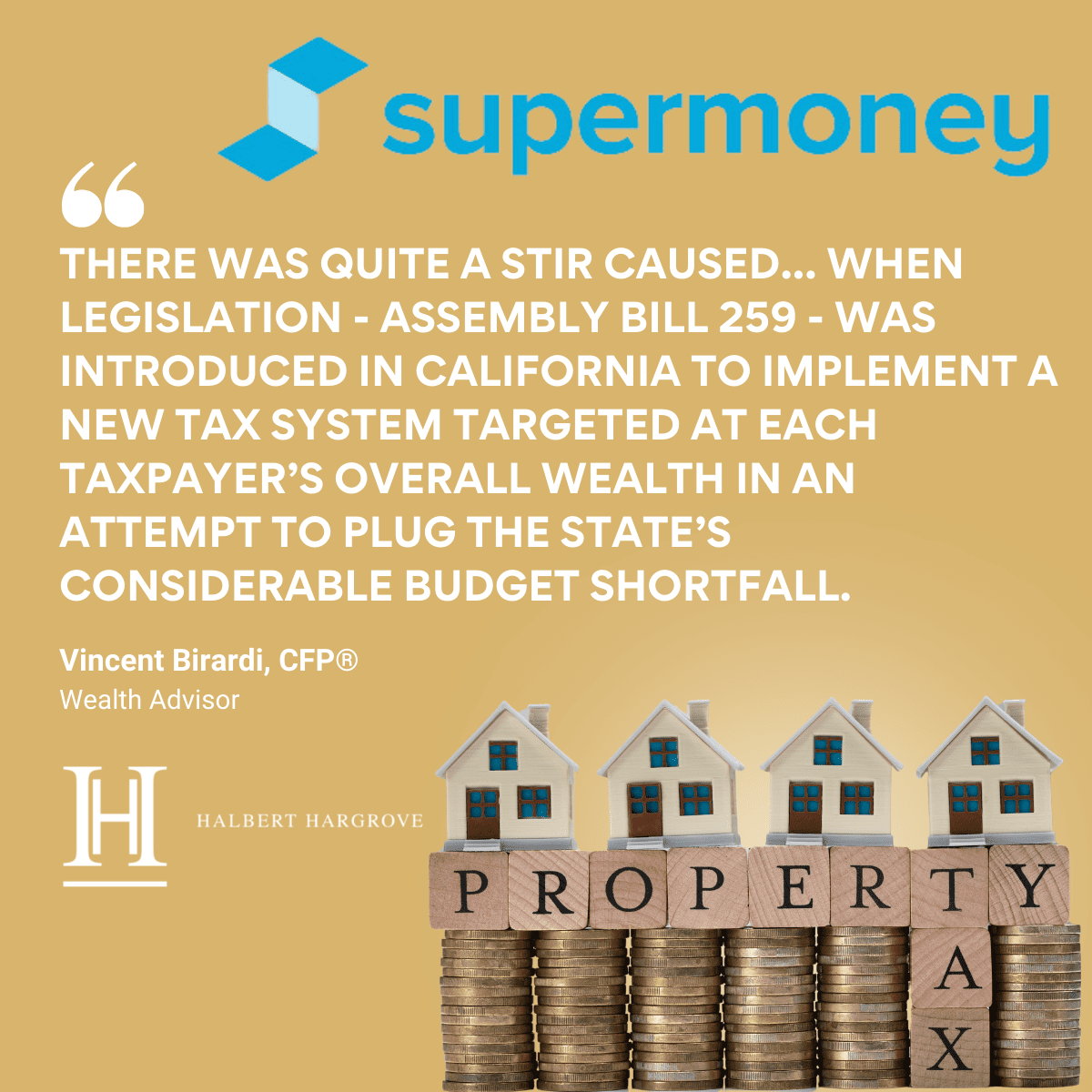By Benjamin Locke, SuperMoney, featuring Vincent Birardi, CFP®, AIF®, Wealth Advisor at Halbert Hargrove
California’s wealthiest residents are finding themselves under a new kind of scrutiny, and it’s not just because of their extravagant lifestyles or sprawling estates. A proposed wealth tax is stirring up conversations in mansions from Malibu to Silicon Valley, with billionaires and celebrities quietly exploring ways to safeguard their fortunes. Rumor has it that even top executives and entertainment icons are discreetly preparing for what could be a major financial shift. As discussions heat up about multi-million dollar investments and luxury assets, it’s clear that California’s wealth tax proposal is sending shockwaves through the state’s elite. Scared? Well maybe you should be….. let’s break it down below.
What is California’s wealth tax?
California’s wealth tax is a proposed legislative measure aimed at taxing individuals based on their total net worth, which includes their assets like property, investments, and other holdings, rather than just their annual income. Traditionally, most tax systems focus on taxing income—what a person earns from their job or investments each year. However, a wealth tax goes a step further by taxing the overall value of what a person owns.
There was quite a stir caused at the beginning of 2023 when legislation – Assembly Bill 259 – was introduced in California to implement a new taxation system targeted at each state taxpayer’s overall wealth in an attempt to plug the state’s considerable budget shortfall. This proposed measure stalled in January 2024 when Governor Newsom and others in the state legislature formally disapproved of the measure and so it’s currently in limbo.
Comment from Vincent Birardi, CFP, AIF and Wealth Advisor at Halbert Hargrove
Here’s a brief breakdown of how the wealth tax would work under the proposed law:
| NET WORTH THRESHOLD | TAX RATE | APPLIES TO |
| $50 million+ | 1% | Net worth, excluding the first $50 million |
| $1 billion+ | 1.5% | Net worth, excluding the first $1 billion |
This tax would be calculated annually based on an individual’s total wealth. For example, if someone has a net worth of $100 million, the tax would only apply to the $50 million that exceeds the $50 million threshold. Similarly, those with over $1 billion in assets would face a higher tax rate on the portion of their net worth above $1 billion.
By focusing on wealth rather than income, this tax seeks to capture value from high-net-worth individuals who may have significant wealth but relatively low annual income, especially if their wealth is tied up in assets such as real estate or stocks.
Who will be affected?
The tax is specifically designed to target the wealthiest individuals in the state—those whose assets exceed certain thresholds. By doing so, the government aims to address the growing wealth gap between the rich and the rest of the population. California has seen a significant rise in wealth inequality, with a small percentage of residents holding a vast majority of the state’s wealth. The wealth tax is intended to reduce this disparity by redistributing wealth through higher taxation on the richest citizens. The proposed tax would apply to about 0.1% of Californians but has raised concerns about driving wealthy residents out of the state. Here’s who will be impacted:
- Individuals with a net worth exceeding $50 million
- Corporations and trusts holding significant assets
- Wealthy individuals relocating to avoid the tax may still face liabilities for years


